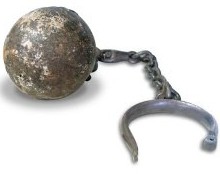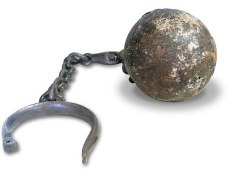 The Supreme Court Avoids the Opportunity to Apply Its Prior Reasoning Critical of Overly Broad Non-Competition Agreements
The Supreme Court Avoids the Opportunity to Apply Its Prior Reasoning Critical of Overly Broad Non-Competition Agreements
The Court decides cases involving non-competition and non-solicitation agreements only infrequently. In 2006, the Missouri Supreme Court balanced the right of a former employee to compete against a former employer versus the employer’s right to use non-competition agreements as protection against unfair competition in Healthcare Services of the Ozarks, Inc. v. Copeland, 198 S.W.3d 604 (Mo. 2006) (en banc), Copeland decision. The court recognized two types of unfair competition–the former employee’s either misuse of the employer’s trade secrets or the employee’s misuse of customer contacts developed at the former employer’s expense. It, however, questioned whether a non-compete obligation that prohibited a former employee from doing business with persons and entities with whom the former employer had never transacted business unreasonably restricted the employee from ordinary, rather than unfair, competition. The specific non-compete obligation barred them from engaging in a competitive business within a radius of 100 mile from Joplin, Missouri. Although the employer did business throughout that geographic area, it provided its services to only a small fraction of the potential customers for home health services there. The court, however, decided the case without answering that question, because the former employees had raised no challenge to the breadth of the non-competition obligation.
In its most recent non-competition decision, Whelan Security Co. v. Kennebrew, 2012 Mo. LEXIS 167, 2012 WL 3627773 (Mo. August 14, 2012) (en banc), Whelan decision, the Missouri Supreme Court faced challenges to the breadth of the restrictions on the employees’ competition. It, however, ducked the question that it had previously raised without answering about obligations that prohibit former employees from competing against the former employer for the business of its potential customers in a geographic area in which it previously employed them. The court, instead, followed “considerable precedent in Missouri support[ing] the reasonableness of a two-year non-compete agreement for an operations manager that is limited to 50 miles.” This rationale ignores its reasoning for refusing to enforce another provision of the non-compete agreement that barred the former employees from soliciting the former employer’s potential customers. In that part of its decision, the supreme court recognized that preventing former employees from soliciting the former employer’s prospective customers “would not protect [the employer] from “‘the influence an employee acquires over his employer’s customers through personal contact,'” but would instead protect it from competition altogether by a former employee. This reasoning resembles the qualms that the court expressed in its Copeland decision to non-compete agreements that prohibit an employee from competitive activities in a geographic area in which the former employer does business with substantially less than all of the potential buyers of its goods or services. In either instance, the restrictions on the former employee do more than protect the employer from unfair competition.
The Court Reversed the Trial Court’s Refusal to Enforce the Non-Compete Agreement after Rewriting the Agreement’s Overbroad Restrictions
The non-compete agreement in the Whelan decision had three distinct restrictions against competition. First, it prohibited former employees from soliciting either the employer’s customers or its potential customers. The agreement defined potential customers as those whose business the employer had solicited in the last 12 months of the employee’s employment. Second, it barred former employees from soliciting any of the employer’s employees. Third, the agreement forbade former employees from working for a business that competed with the employer within a radius of 50 miles of any of the employer’s locations.
The employer, Whelan Security Co. (“Whelan”), provided security and guard services from 38 branches located in 23 states. It employed Charles Kennebrew as its Dallas branch manager and Landon Morgan as its Nashville branch manager. Each of them had signed substantially the same non-compete agreements with Whelan, except for the duration of the restrictions. Kennebrew’s agreement restricted him for two years after his employment ended. Morgan’s non-compete agreement, however, bound him for only one year following the termination of his employment. After his resignation from Whelan, Kennebrew started his own security and guard services business in Houston. Several months later, Morgan quit his job with Whelan and joined Kennebrew’s company. Kennebrew then successfully solicited business from one of Whelan’s Houston customers. Morgan next successfully solicited several of Whelan’s employees performing services for the same customer. Whelan sued Kennebrew and Morgan, seeking injunctions and damages. The trial court dismissed Whelan’s lawsuit, finding the non-compete agreements to be overbroad and unreasonable as to both time and geographic scope.
The supreme court reversed the trial court’s dismissal of Whelan’s lawsuit. Although it found some of the non-compete agreement’s provision to be overbroad, it rewrote most of them to make them reasonable and enforced the re-written non-compete agreements. Specifically, the court rewrote the agreement’s provisions regarding the solicitation of Whelan’s customers and prospective customers. First, it found nationwide obligations to avoid the solicitation of Whelan’s customers unreasonably broad. It limited the enforcement of the prohibition against the solicitation of Whelan’s customers to those customers with whom the employee had transacted business for Whelan. Second, it rejected the non-compete agreement’s prohibition against the employee’s solicitation of Whelan’s prospective customers as overbroad. With respect to the solicitation of Whelan’s employees, it enforced Morgan’s restriction as written, because it prohibited him from soliciting Whelan’s customers for the statutorily presumed reasonable period of one year. The court, however, remanded the case to the trial court for it to determine whether the two-year restriction on Kennebrew’s solicitation of Whelan’s employees had a statutorily valid purpose. Finally, as previously discussed, the supreme court blindly followed earlier Missouri precedents finding two-year non-compete obligations limited to a radius of 50 miles from the former employee’s place of work for the former employer to be reasonable and enforceable.
Employer Take-Aways: Reasonable Non-Compete Agreements Offer Significant Protections to Employers
Missouri law allows employers to protect their trade secrets and customer contacts by reasonable non-competition agreements. The Whelan decision gives guidance to employers as to how to write reasonable restrictions. Ultimately, the individual circumstances of each employment relationship determines the reasonableness of a non-compete agreement’s restrictions. Generally, the Whelan decision’s take-aways include:
- Limit post-employment restrictions on customer solicitations to those customers with whom the employee interacted.
- Use the one-year safe harbor for post-employment restrictions on a former employee’s solicitation of employees
- Include a statutorily recognized purpose for an employee non-solicitation obligation longer than one year in the text of the non-compete agreement, such as protection of confidential or trade secret business information, relationships with customers or suppliers, the employer’s goodwill, or loyalty to the employer
- Avoid general post-employment non-compete obligations with geographic scopes of more than a 50-mile radius from the employee’s last workplace with the employer and durations of greater than two years after the termination of employment


2 Responses
So in MO, a liftetime non-solicitation of customers would fall under the unduly broad scope if I am reading this correctly, likely a year would be more reasonable?
I really don’t get it,why would there be a competition between the people about healthcare services.